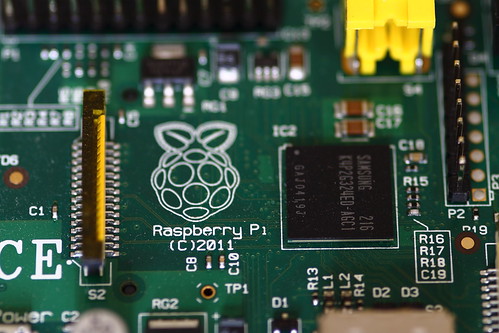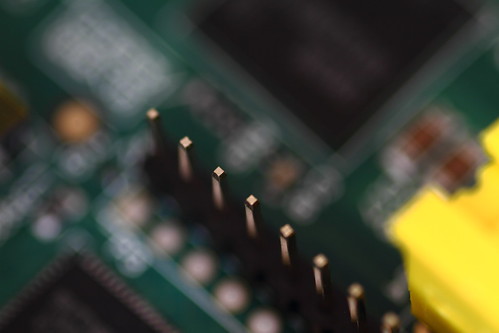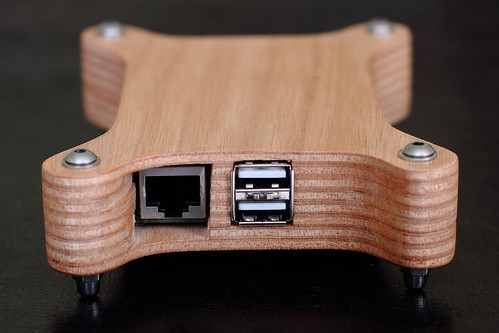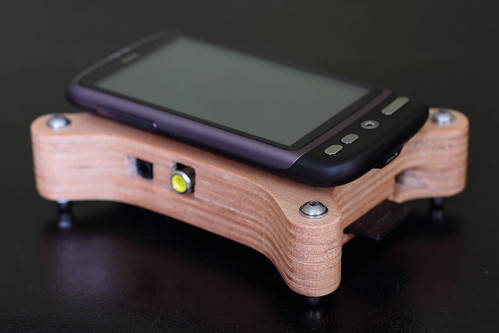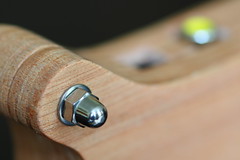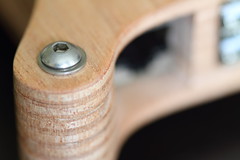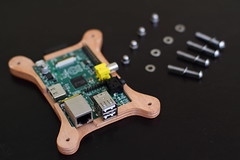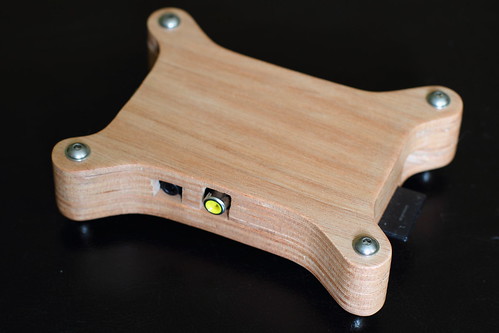So small, and yet so full of potential. Certainly doesn't come with any instruction manual but there's plenty of opinion floating about online (and in forums a lot less scary than Mumsnet). This is my baby. And I'm already so so proud.
The Raspberry Pi, to those of you not in the know, is a tiny piece of British computing. It comes in at £25 for this, the top spec Model B. For your hard earned Pony, you get a 700mhz processor, 256mb of RAM, two USB ports and an Ethernet port. It uses HDMI for digital video output and is powered by a 5v Micro USB mobile phone charger. The OS and any programmes/files you create are stored on a single SD card.
Of course, it's not all about kids. Already I've seen a dozen projects of great originality and fun. A low powered machine running Linux can do *so* much it's mind-blowing. My own dreams are much less grand.
First and foremost I wanted to have a computer I could really play with. It's all well and good experimenting with your every day computer, but the fact is that if you do something wrong you risk not having access to email, losing important files etc. This way, if the very worst happens, I can just wipe the SD card and start again from fresh. Also, being a Linux OS (currently Debian Squeeze) I get to have the fun of playing with the command line. I like the command line. It feels polite. Most of the time we prod at buttons, lacking the courtesy to ask nicely for what we want. Command line is please and thank you. And what's more, you're able to do pretty much everything from one place rather than having to trawl through the desktop menus to find the one thing you want.
I'm tweeting from my pi which is now sitting in it's nearly complete case.It's looking fab
— Stephen (@themanoutside) June 5, 2012
One of the first things I learnt to do was to tweet from the command line using Twidge
Secondly I liked the idea of simple, low power consumption computing for things like word processing. I've installed Abi Word and, with my Filco keyboard hooked up, I can't think of a more appropriate word processing machine. Forget wifi internet access - unless I go to the trouble of plugging in the ethernet cable, I'm without the net. And anyway, if I start trying to do both at the same time, things will slow down. So it makes sense to be disciplined and single minded in your writing.
Thirdly, I've been wanting to scratch build a computer enclosure for a very long time. I'd dreamt of doing something with mini-itx as I didn't care about great power and wanted the finished item to be small. Small? Mini-itx is massive in comparison to this thing! Just take a look of it in comparison to my HTC Desire.
So here we have it - 3mm plywood layers cut carefully on my rusting, aged scroll saw. Honestly, it shook so much I expected it to fall apart. I will hopefully upgrade the machine at some point which would make the whole thing easier (poor cutting depth meant I could only cut one layer at a time). The eight layers were split 3/5 and glued to form the top and bottom. I 'temporarily' glued the two layers together with Tesco own brand pritt stick, only to find afterwards that it was the strongest glue in the world! With the case in one block I was able to sand it down to even up my poor cutting and, after drilling the four bolt holes, finish to 400grit. It was then (eventually) split into the two halves and coated with sanding sealer and wax to keep it looking as natural as possible. In the original design I'd been thinking about a flower press and had intended to use wing nuts on top. However when I fitted some temporary (too short at 25mm) machine screws, I was rather taken with the look. So the case was finished with 30mm M4 stainless button head bolts with stainless washers and dome head bolts (which then acted as feet). It's easy to undo the dome heads with your fingers and then gain access to the Pi.
I had thought about leaving a hole to view the LEDs, but as my initial use will be less experimental (globally speaking - it's pretty experimental to me!) I don't see this as a great problem.
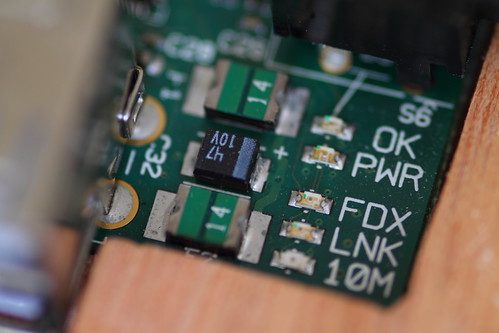
Close-up of the LEDs which have been left covered - design flaw? Or sacrifice to aesthetic perfection?
As it is, I like the simplicity. Frankly I think it's prettier than anything Apple could do.
So there you have it. I've already learnt all manner of exciting things and there's so much more to come!
EDIT 2013 - PLANS NOW AVAILABLE

